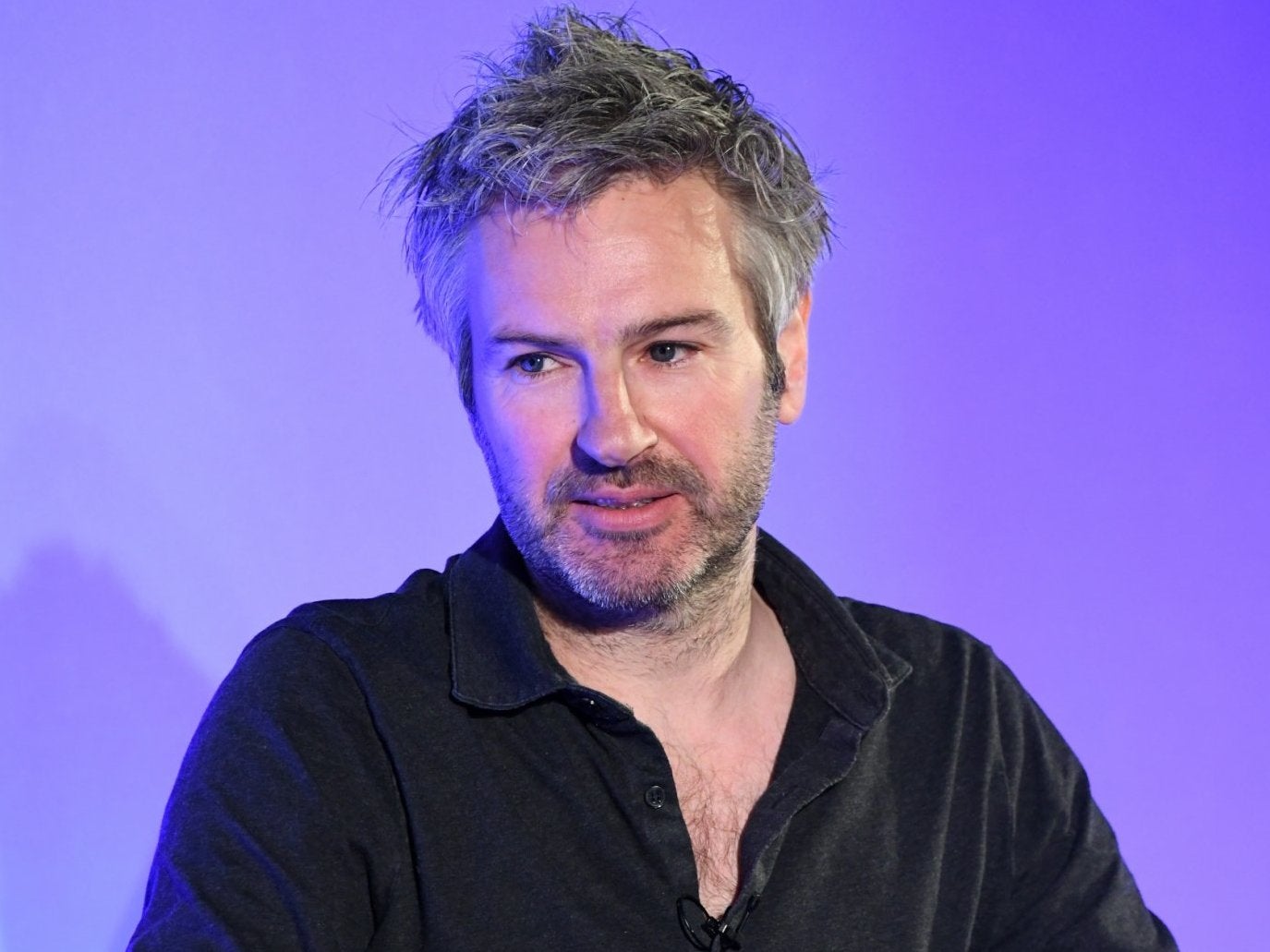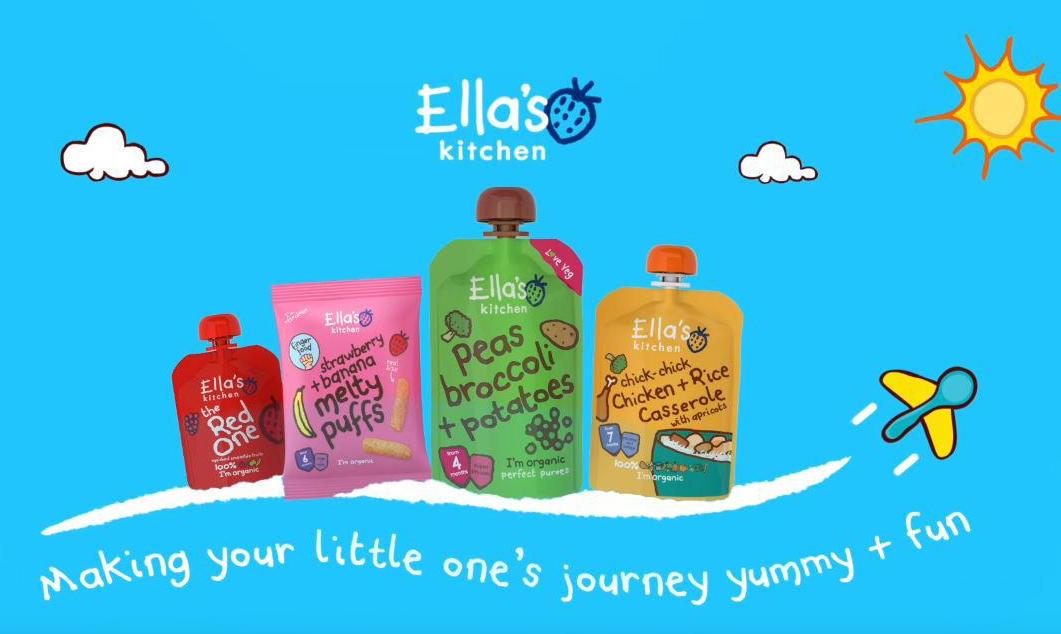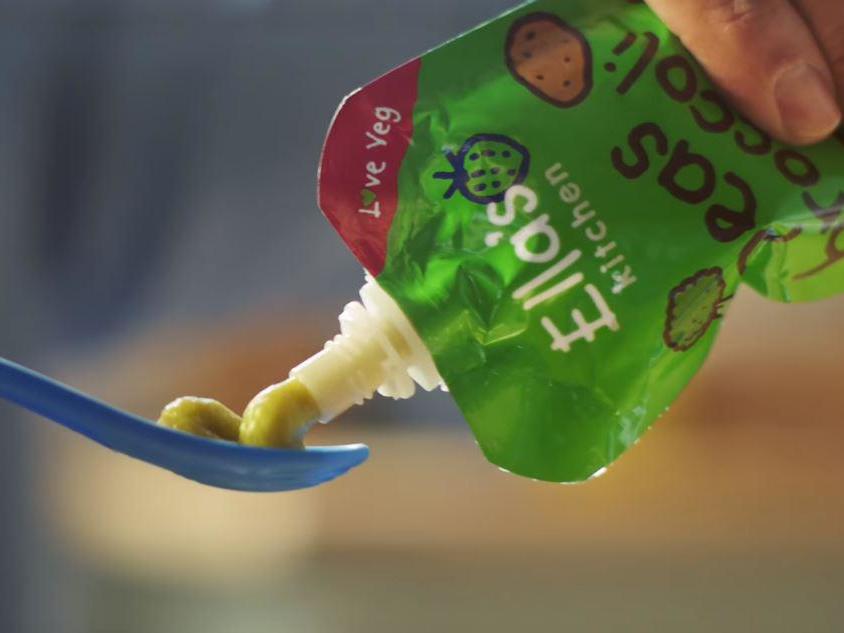A View from the Top with CEO of Ella's Kitchen Mark Cuddigan
The international baby food CEO tells Caitlin Morrison about the lure of organic food and how the quality of British nutrition has a long way to go – especially with Brexit


Most business people seem to have a tale of a long and winding road to the top, but Mark Cuddigan’s CV really does throw up a few surprises.
He’s a former professional tennis coach and semi-professional DJ with a geography degree, who now runs Ella’s Kitchen after stints running a nut company and a granola business.
“It’s one of those things – it’s really difficult to know what you want to do or what you are good at,” he says.
The one thing he has always been interested in, however, is “selling things”. This is what he did at the Dormen Food Company, and then at Lovedean Granola.
However, after selling the granola business he was “looking around for something to do”.
“Then I met Paul,” he says, referring to Paul Lindley, the founder and former chief executive of Ella’s Kitchen.
“He’s a very persuasive and inspiring man,” says Cuddigan. “I have been selling stuff to supermarkets for 25 years but Ella’s has changed what I think about business and how it should be done.”
One of the reasons that Ella’s Kitchen sparked Cuddigan’s interest was that the opportunity to work there arose just after the birth of his first baby, “so I was quite interested in the baby arena”, he says.
“In any business there’s a certain intuition. For me having two kids means I’m interested. It certainly helps, it means I can empathise with our customers.”

He joined the group in 2011 as a director, and became chief executive in 2013, taking over from Lindley. The widely held view is that it’s difficult to step into a founder’s shoes, but Cuddigan says that wasn’t the case for him.
“Most people say it’s really really tricky but I have to say Paul was incredible. He knew how difficult it would be for me to take over with him sitting in the background, I knew it was difficult for him because he wanted to stay involved but he took a massive step back. Taking over was relatively easy because he was there to support me, and he gave me total autonomy.”
Ella’s Kitchen dominates in two very important, overlapping markets – it makes food for babies and toddlers, and all its products are organic.
“We are really proud of what we have achieved nutritionally,” says Cuddigan.
Food in general has become too cheap and undervalued and as such I think the quality of the food that we are eating is pretty poor
However, despite the popularity of his brand, he thinks there is a long way to go with encouraging British consumers to make healthier choices when it comes to food.
“I’m not sure that people are opting for healthier alternatives.”
Cuddigan blames the low price of the products on offer in UK supermarkets.
“Food in general has become too cheap and undervalued and as such I think the quality of the food that we are eating is pretty poor.”
He gives the example of a ready meal that might retail for £1.50: “Once you have taken in the producers’ margin, you are probably talking about something that’s been made for 15p.
“We need to reset that in consumers’ minds, that good quality food costs money.”
He readily acknowledges the reason Ella’s Kitchen is an outlier in this regard.
“It’s difficult but ever so slightly easier in our category, because parents prioritise their children’s foods.”
This adherence to high-grade, organic ingredients has made Ella’s Kitchen the popular brand that it is today, but it has also created obstacles.
For one thing, it makes it difficult to compete on price. In recent years, Cuddigan says, Ella’s Kitchen came up with a new snack offering, but as it got closer to the launch, it became clear the product would be “more than two times the price of the nearest market rival” and so it had to be spiked.
So would the company opt to use cheaper ingredients in order to lower retail prices?

“The temptation is there but we are not going to do it, that’s a zero-sum game,” says Cuddigan.
Meanwhile, the brand is also facing turbulent times heading into Brexit.
“A hard Brexit would be devastating to our business, because we have a very complicated UK supply chain and we use high-grade organic produce,” says Cuddigan.
“We have been planning for over a year. In terms of time resource it’s been one of our biggest projects.
“The most frustrating thing is we don’t know what we are planning for.”
However, Cuddigan is clear that potential disruption will not have any impact on the quality of the products Ella’s Kitchen brings to the market.
“The number one priority has to be trust,” he says, illustrating this point with a reference to the horse meat scandal which rocked the UK’s food sector in 2013.
“We survived that scandal, we knew we were going to be fine, because we knew exactly where our meat was coming from.”
“I want to be happy at work and I want to do work that’s valuable,” Cuddigan says.
“I feel quite strongly that when you look at these companies that have been in scandals they will have values that are stuck up on the wall. If they followed those values they wouldn’t be in those scandals.”
Join our commenting forum
Join thought-provoking conversations, follow other Independent readers and see their replies
Comments